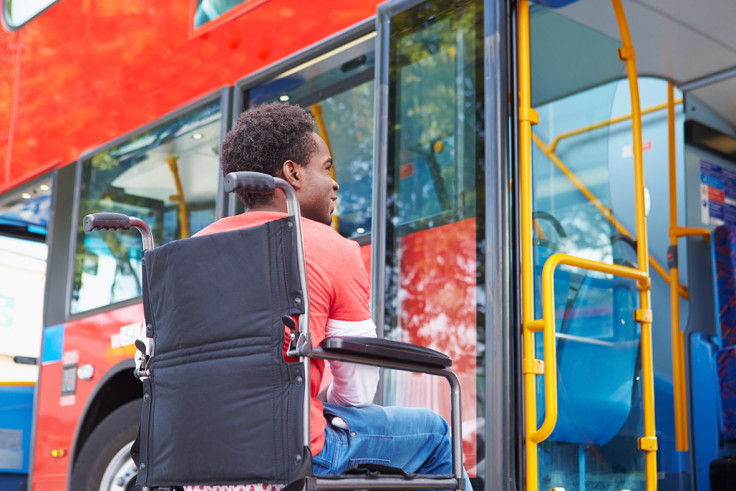Disabled man wins UK Supreme Court case after FirstGroup bus injustice
Critics said the judgement did not provide enough clarity regarding disabled people's rights on public transport.

A disabled man prevented from boarding a bus, by a mother with a pram occupying the wheelchair space, has won a landmark Supreme Court case on 18 January 2017. Drivers are now obliged to do more to accommodate wheelchair users.
Yorkshireman Doug Paulley was told he could not get on a FirstGroup bus in 2012 after a woman with a buggy declined the driver's request that she move to make space. The driver was acting in accordance with the firm's policy of asking able-bodied passengers to free-up the space for wheelchair users without forcing them to do so.
The Supreme Court ruled that bus companies can now demand that other people withdraw from spaces for wheelchair users but it did not establish a legal requirement for them to do so. The onus is now placed on drivers to determine which of any competing parties gets to occupy the space.
Paulley told the BBC: "Who would have thought that five years on I would still being discussing the day I had that problem going across to see my parents for lunch?
"What this judgement means is the driver has to make their own decision as to whether the person is being unreasonable in refusing to move, and if they are, he or she has to tell them that they are required to move, and if necessary refuse to move the bus until they shift. So that's very clear, I think."
Critics said that the ruling did not provide enough lucidity regarding the rights of disabled people on public transport. Mr Paulley's solicitor Chris Fry said: "The judgement should have gone further – there's no right as things currently stand to force someone off a bus. So it goes as far as that, but not that far yet."
Zoe Hallam told BBC Two's Victoria Derbyshire Programme: "I think the whole point of the case was to try to get more clarity about how far bus drivers are meant to go in terms of requiring people to move out of the space. I'm not sure this ruling has provided this clarity."
© Copyright IBTimes 2025. All rights reserved.



















